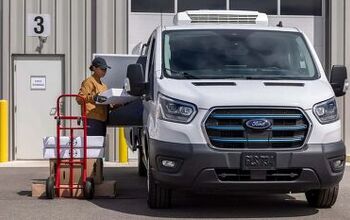What Happens to My Insurance If I Track My Car?

Racing your personal car on a designated racetrack is legal, but you should really understand the risks. What you think is risky and what your insurance company thinks is risky, however, might be a bit different.
“For years, track day devotees have faced uncertainty when participating in track events eventually shying away from these events altogether because they don’t want to ask their insurance company,” Andrew Mangialardi of Moore-McLean Insurance says. This company has policies that “will cover drivers who want to take their prized possessions to the track,” he adds.
Moore-McLean is a leading track day insurance provider and it prides itself on offering flexible insurance options for unique situations involving track day activities. But what is the effect of all of this on auto insurance policies catering to normal daily driving?
Racing Smart
Horror stories insinuate that an insurance policy will be on thin ice if you report tracking your car or if there is any suggestion by the insurance company that you did at any one time. The horror stories say that companies might even do something drastic like drop you as a client if you merely inquire about track activities.
Some people have reported that insurance companies send out “spies” to track days and will run plates to see if any of their clients have been tracking their cars. Other people have reported that if insurance companies suspect a policyholder is tracking their car, they could check social media and act on whatever proof they find. If drivers were paranoid of being caught this way and facing the penalties, one option would be to cover your plates and VIN as soon as you get to the track or keep your social media profile private. There is little proof of insurance companies being so drastic, however.
Each company will have a different way of doling out consequences and each state and province essentially has its own laws regarding insurance, but the bottom line is that you are better off thinking this through and being prepared if you are planning to take your car to the track. There are a few ways to do this.
There is Hope
Some tracks offer insurance or host track day insurance providers on site, which is a great option because this way you won’t even have to risk telling your regular insurance company and still have peace of mind in case something bad happens. Some of these on-site policies are more thorough than others, however, as some track-side insurance providers won’t cover time attacks, for example, while others do.
Stoneridge Specialty insurance is a company in Canada that offers flexible auto insurance options for track purposes. “Our policies are designed to really take the stress off of drivers who know to come to us looking to have a safe and secure way to enjoy a track day,” said account representative Kory Besta. “Flexibility is maximized in terms of processing because paperwork is processed fast, no driver history is required, and the policy stays uniform across all Canadian provinces.”
He also iterated that from his experience, injuries and crashes on the track are quite rare because people come in well prepared and are actually more vigilant driving than they would be on regular roads due to anticipating the heightened risk of the experience.
ALSO SEE: Top 10 Ways to Be a Better Track Driver
Other companies in the United States offer similar policy options but with their own individual benefits and limitations. RLI Insurance offers track day insurance vehicle coverage for your track car but liability coverage is not available. Also, your vehicle coverage is valid as long as you are not involved in any planned racing event on the track (although time-trial events are allowed). An auto claim policy specialist from the company says, “I understand track days can be a day for fun with your friends, but bear this in mind. Any planned competition racing event between you and your friends is not covered under any of our track insurance policies.”
A very useful benefit of RLI’s policy is the Agreed Value system. This gives the driver total control of the vehicle’s listed value on the policy.
Hagerty Insurance offers a similar policy for comprehensive vehicle coverage but one-ups RLI by offering liability insurance. There’s a catch, however. “Our policies for track insurance give you an option to buy additional liability coverage from a third party company separate from us,” said a policy advisor for Hagerty Insurance. That additional step may be too cumbersome for some just looking to go to the track once in a while.
Lockton Motorsports offers a fully interactive website enabling interested track aficionados to obtain a comprehensive rundown on policy requirements and stipulations. A quick quote generator is on hand as well to give you preliminary quotes within seconds — a single event quote for a valued $50,000 car goes for $311.
We noticed a secretiveness from insurance agents in general while attempting to collect information regarding track insurance. Perhaps this is a symptom of the “grey area” of coverage associated with this type of insurance. People inquiring about track insurance have to also ensure their regular auto policy can work side by side with their track insurance policy. Sometimes, the answer is not clear-cut and it is the responsibility of the inquirer to investigate further.
Most drivers looking to track their cars keep their mouths shut insurance-wise, and simply hope that nothing bad goes down. One driver who tracks her car religiously says she prefers not to even mention anything insurance-related and prefers to bite the bullet. “On the weekends, my race crew and I hit up Toronto Motorsports Park and prep for our race day. We law low and take precautions if necessary. Covering up our license plates would not be out of the ordinary for us in times like this,” she said (she requested to remain anonymous for obvious reasons).
Bottom Line: What Happens to My Insurance If I Track My Car?
Some drivers who wish to track their cars get so wrapped up about the potential obstacles with their existing insurance policy that they forget they actually have other legitimate ways to protect their investment.
You can track your car without possibly harming your regular auto insurance policy. But just as you have strived to protect your car under normal driving conditions, why take the unnecessary risk?
Put in the time and search for the proper track insurance policies and companies available for added peace of mind. Don’t forget to read the fine print and completely understand the contract you are signing.

Chidi loves talking about cars. He enjoys exploring the limits of new car technology and performance vehicles. When he is not writing features for AutoGuide, you will most likely find him perusing Kijiji or Autotrader listings for unique classic nameplates.
More by Chidi Ohiaeri


































Comments
Join the conversation